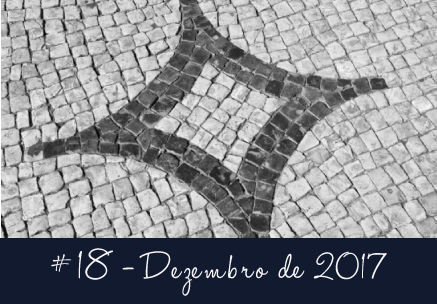THE FEMININE WRITING IN FAZES - ME FALTA : DEAD BODY, DECONSTRUCTED CORPUS
DOI:
https://doi.org/10.11606/issn.2175-3180.v9i18p85-100Keywords:
Feminine Writing, Inês Pedrosa, deconstruction, woman-narrativeAbstract
The present study aims to present how in the work Fazes-me falta, written by Inês Pedrosa, one of the most significative voices of the Contemporary Portuguese Literature, the author, making use of the feminine writing, undertakes a critique of the condition of women in our present context while bringing this condition closer to the process of deconstruction of the novel. In other words, it aims to observe the fusion that is established between the body of the female character and the narrative corpus in its process of (de)construction. Exploratory and bibliographical, and making use of the feminine writing, the research reveals a questioning narrative of the official paradigm and the configuration of a woman-narrative, marked by incompleteness and fragmentation.
Downloads
References
PEDROSA, Inês. Fazes-me Falta. São Paulo: Planeta, 2003.
BARTHES, Roland. O Prazer do Texto. São Paulo: Perspectiva, 2013.
BATAILLE, Georges. O Erotismo. Belo Horizonte: Autêntica Editora, 2014.
BRANCO, Lúcia Castello. A Traição de Penélope: Uma Leitura da Escrita Feminina da Memória. Tese de Doutorado – UFMG, Belo Horizonte, 1990.
______. O que é Escrita Feminina. São Paulo: Brasiliense, 1991.
DIAS, Maria Heloísa Martins. “O Mestre, de Ana Hatherly: Uma insólita aprendizagem”. São José do Rio Preto, UNESP: Revista Ângulo, 125, Abr.-Set., 2011. p.98-105. Disponível em: http://www.fatea.br/seer/index.php/angulo/article/viewFile/801/564.
GOMES, Álvaro Cardoso. A Voz Itinerante. São Paulo: Edusp, 1993.
REAL, Miguel. O Romance Português Contemporâneo: 1950-2010. Lisboa: Editorial Caminho, 2012.
SIMÕES, Maria de Lourdes N. “Para não dizer que não falei dos cravos”. IN: ____. As Razões do Imaginário – Comunicar em Tempos de Revolução. Salvador: UESC, 1997.
Downloads
Published
Issue
Section
License
Copyright (c) 2017 Diana Navas, Telma Regina Ventura

This work is licensed under a Creative Commons Attribution-NonCommercial 4.0 International License.
O(s) autor(es) declara(m) automaticamente ao enviar um texto para publicação na revista Desassossego que o trabalho é de sua(s) autoria(s), assumindo total responsabilidade perante a lei nº 9.610, de 19 de fevereiro de 1998, no caso de plágio ou difamação, obrigando-se a responder pela originalidade do trabalho, inclusive por citações, transcrições, uso de nomes de pessoas e lugares, referências histórias e bibliográficas e tudo o mais que tiver sido incorporado ao seu texto, eximindo, desde já a equipe da Revista, bem como os organismos editoriais a ela vinculados de quaisquer prejuízos ou danos.
O(s) autor(s) permanece(m) sendo o(s) detentor(es) dos direitos autorais de seu(s) texto(s), mas autoriza(m) a equipe da Revista Desassossego a revisar, editar e publicar o texto, podendo esta sugerir alterações sempre que necessário.
O autor(s) declara(m) que sobre o seu texto não recai ônus de qualquer espécie, assim como a inexistência de contratos editoriais vigentes que impeçam sua publicação na Revista Desassossego, responsabilizando-se por reivindicações futuras e eventuais perdas e danos. Os originais enviados devem ser inéditos e não devem ser submetidos à outra(s) revista(s) durante o processo de avaliação.
Em casos de coautoria com respectivos orientadores e outros, faz-se necessária uma declaração do coautor autorizando a publicação do texto.
Entende-se, portanto, com o ato de submissão de qualquer material à Revista Desassossego, a plena concordância com estes termos e com as Normas para elaboração e submissão de trabalhos. O não cumprimento desses itens ou o não enquadramento às normas editoriais resultará na recusa do material.


